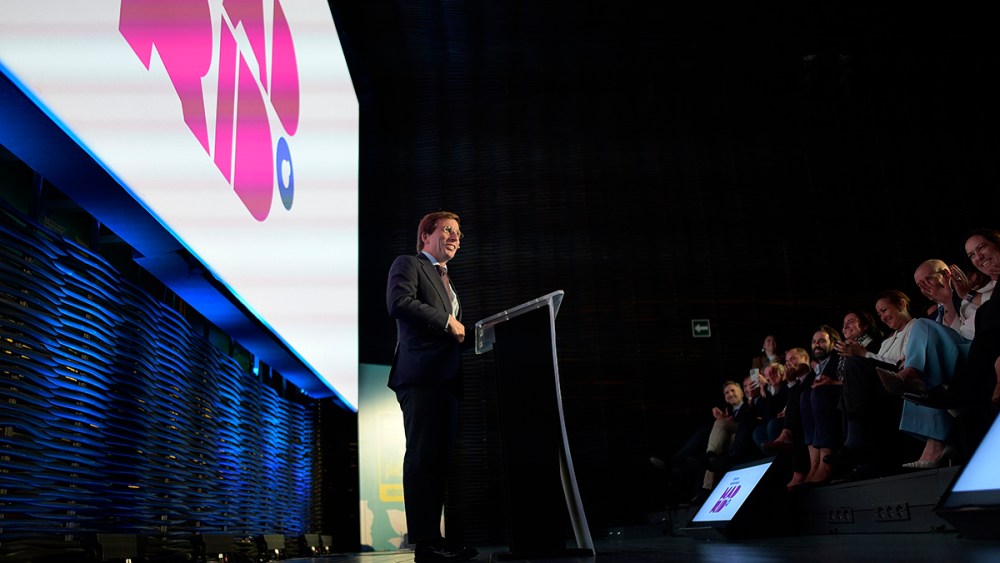Madrid Audiovisual Cluster to Create a Madrid Audiovisual Observatory
Launched in March 2023, the Madrid Audiovisual Cluster will create a Madrid Audiovisual Observatory, to analyze the state of the city’s industry and inspire public-sector policies to take it to next level.
News of the Observatory came at an official presentation of the Cluster on the first day of the Iberseries & Platino Industria convention in Madrid last week.
Speakers at the event took in not only Secouya Group president Raul Berdones, also Cluster president, but also Madrid mayor José Luis Martínez Almeida and Mariano de Paco, Culture Tourism and Sport of the Community of Madrid region, with 6.8 million inhabitants, a show of public sector political strength and potential given that Madrid is one of the biggest business centers in Southern Europe.
According to Berdones, the Observatory will analyze the importance of the audiovisual sector, including the impact of shoots, and new business models, he said at the Iberseries presentation. It will also study audience consumer data, and trends, including what kind of content it views, he added.
The Cluster is elaborating a strategic plan to define its priorities which have been defined in four blocks, Berdones added. Initiatives take in networking events in and outside Spain, the creation of alliances with third party partners and associations, and the digitalization of companies, boosting competitiveness, and the sustainability of shoots.
“Above all,” Berdones said at the Iberseries presentation, the Cluster will promote “public-private sector [relations], which is part of the [the Cluster’s] objective.”
Certainly, it can look to have Madrid municipal and regional support. “The Cluster now boasts 76 members, a 40% uptick on the number with which it launched,” said Berdones. “When I was preparing this speech with the Cluster’s magnificent managing director Teresa [Azcona], whom we appointed four months ago, we said we had to leave clear that this is not a cluster, it’s the cluster, made up of all the companies in whatever facet of the audiovisual,” he said.
The Cluster, according to a press statement, now includes 13 trade associations; Spain’s principal streaming services (Netflix, Amazon, Disney y Movistar); top producers (Tornasol, Izen, The Mediapro Studio’s banner label Globomedia, Mediacrest and Secuoya Studios); high-tech leaders such as Telefónica, Paramotion and Madrid’s Pixel animation/VFX cluster; film schools (ECAM, UTAD and The Core); rights entities (EGEDA, SGAE and Dama), universities, banks and law firms specialist outfits (The Film Agency, Mrs Greenfilm and OMMA).
At the Iberseries presentation, both Martínez Almeida and De Paco pledged the Town Hall and regional government support for the Cluster.
“From the Community of Madrid, we offer support, participation and collaboration for one of the cultural and economic pillars of the region, betting on a public-private sector collaboration. It’s fundamental that public administration works hand and hand with private-sector companies and channels such as the Cluster,” said De Paco.
Martínez Almeida promised “full institutional and economic support without any interference.”
It remains to be seen how that works out: Whether in just financial support or beyond that, the co-elaboration of public sector policies.
One thing seems certain: Madrid now has a new film-TV player.


